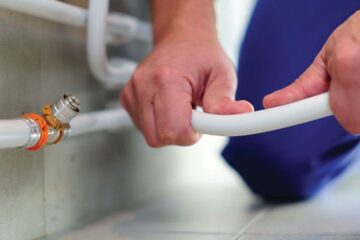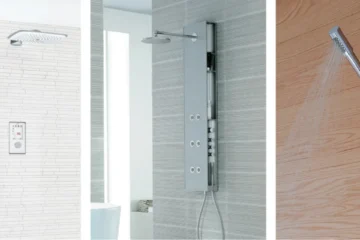Rainwater harvesting has gained popularity as a sustainable practice, allowing homeowners to collect and utilize rainwater for various purposes. However, to ensure the water is safe and usable, it is essential to implement effective filtration systems. This article will explore different types of rainwater filtration systems, their technical aspects, and practical plumbing considerations, emphasizing the importance of “sistemas de filtracion.”
Understanding Rainwater Filtration Systems
Rainwater filtration systems are designed to remove contaminants from collected rainwater. These systems can vary significantly in complexity and efficiency, depending on the intended use of the water. Common applications include irrigation, toilet flushing, and even potable water supply. Understanding the types of systems available is crucial for selecting the right one for your needs.
First Flush Diverters: First flush diverters prevent the initial runoff, which often contains debris and pollutants, from entering the storage tank. This system directs the first few gallons of rainwater away, allowing cleaner water to be collected afterward. Proper installation is essential to ensure effective operation.
Sediment Filters: Sediment filters are designed to remove larger particles, such as leaves and dirt, from the collected water. They can be installed at various points in the system, ensuring that sediment does not clog the storage tank or affect water quality.
Activated Carbon Filters: Activated carbon filters improve the taste and odor of rainwater by removing chlorine and volatile organic compounds (VOCs). These filters require periodic replacement and should be easily accessible for maintenance.
Ultraviolet (UV) Disinfection Systems: UV disinfection systems use ultraviolet light to kill bacteria and viruses in rainwater, making it safe for potable use. These systems should be installed after all other filtration processes to ensure optimal effectiveness.
Reverse Osmosis Systems: Reverse osmosis (RO) systems are highly effective in producing high-quality drinking water. They use a semi-permeable membrane to remove a wide range of contaminants. Regular maintenance is required to keep these systems functioning properly.
Benefits of Rainwater Filtration Systems
Implementing rainwater filtration systems offers numerous benefits. They promote sustainability by reducing reliance on municipal water supplies and conserving natural resources. Utilizing harvested rainwater can lead to significant savings on water bills, especially in areas where water is scarce or expensive.
Moreover, rainwater is often softer than tap water, which can be beneficial for gardening and irrigation. By filtering rainwater, homeowners can ensure that it is safe for various uses, including irrigation, toilet flushing, and even drinking, depending on the filtration system employed.
Practical Plumbing Considerations
When installing rainwater filtration systems, several plumbing aspects must be considered to ensure optimal performance. Proper system design is crucial for effective filtration, which includes selecting the right type of filters and ensuring they are installed in the correct order. Additionally, it is essential to ensure that all components of the rainwater filtration systems are easily accessible for regular maintenance.
Implementing backflow prevention measures is vital to ensure that filtered rainwater does not contaminate the municipal water supply, particularly for systems that connect to existing plumbing. The storage tank should also be designed to minimize contamination, with features such as sealed lids and overflow outlets to prevent debris from entering.
Conclusion
In summary, understanding the various types of rainwater filtration systems is essential for anyone considering rainwater harvesting. From first flush diverters to advanced reverse osmosis systems, each type of filtration system plays a vital role in ensuring the collected rainwater is safe and usable. By focusing on the technical aspects and practical plumbing considerations, homeowners can effectively implement these systems and enjoy the benefits of sustainable water use. The importance of “sistemas de filtracion” cannot be overstated, as they are crucial for maintaining water quality and ensuring the safety of rainwater for various applications.
If you liked this article, we invite you to read our article on rainwater where you will learn about collection systems and much more.



0 Comments